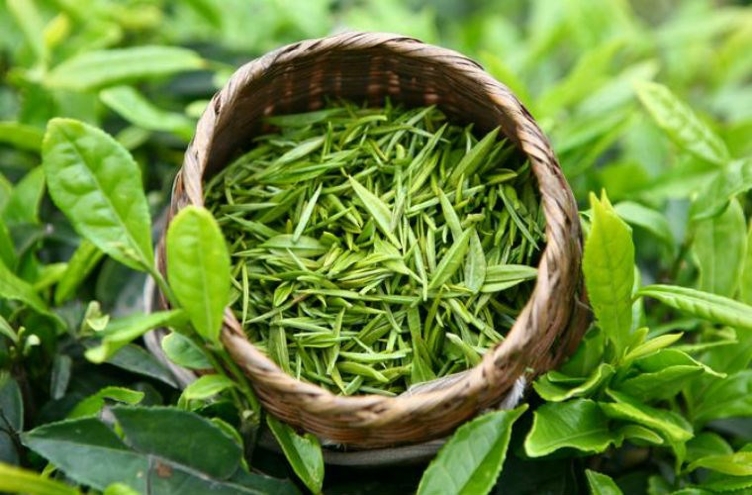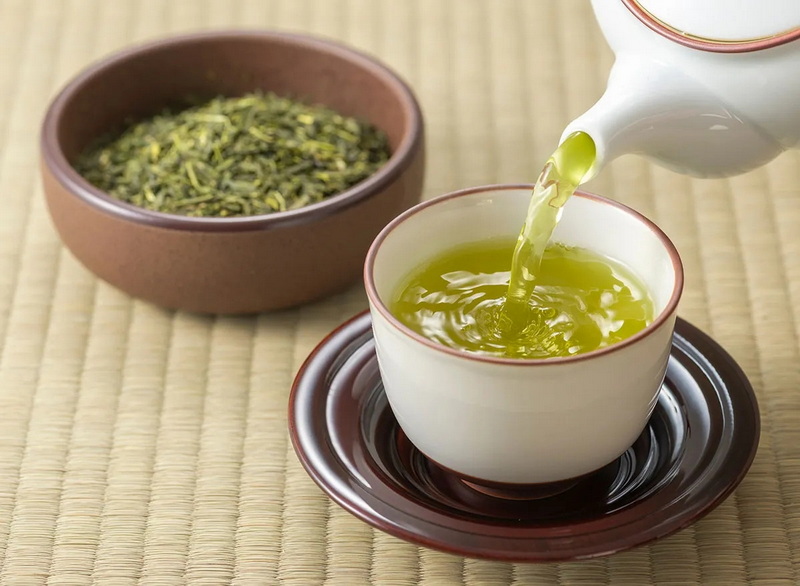Content Menu
● Understanding Green Tea Extract
● The Composition of Green Tea
● How Much Green Tea Extract Equals One Cup?
● Brewing Techniques for Maximum Extraction
● Health Benefits Associated with Green Tea Extract
● Popular Types of Green Tea
● Incorporating Green Tea into Your Diet
● Potential Side Effects
● Conclusion
● FAQ
>> 1. What is the best way to brew green tea for maximum health benefits?
>> 2. How many cups of green tea should I drink daily?
>> 3. Is there any risk associated with consuming too much green tea or its extracts?
>> 4. Can I get enough EGCG from drinking regular green tea?
>> 5. Are there any specific types of green tea that are better for health benefits?
● Citations:
Green tea is one of the most popular beverages worldwide, renowned not only for its refreshing taste but also for its numerous health benefits. Derived from the leaves of the Camellia sinensis plant, green tea is rich in antioxidants and various bioactive compounds, particularly catechins. Among these catechins, epigallocatechin gallate (EGCG) is the most studied due to its potential health benefits.

Understanding Green Tea Extract
Before diving into the specifics of how much green tea extract is present in a cup of tea, it's essential to understand what green tea extract is. Green tea extract is a concentrated form of green tea that retains the beneficial compounds found in the leaves but in much higher concentrations. This extract can be consumed in various forms, including capsules, powders, and liquids.
The Composition of Green Tea
A typical cup of brewed green tea (approximately 240 ml) contains:
- Caffeine: About 30-40 mg
- Catechins: Approximately 50-100 mg
- EGCG: Generally around 30-50 mg, depending on brewing time and temperature
The actual amount can vary based on several factors including:
- Type of Green Tea: Different varieties have different concentrations of catechins.
- Brewing Time: Longer steeping times typically extract more catechins.
- Water Temperature: Higher temperatures can increase the extraction of beneficial compounds.
How Much Green Tea Extract Equals One Cup?
When discussing green tea extract in relation to brewed tea, it's crucial to note that a standard serving of green tea extract (often found in supplements) can vary significantly. For instance:
- A common dosage for green tea extract supplements is about 250 mg per serving.
- This amount typically contains about 30 mg of EGCG and 100 mg of total polyphenols.
Thus, one cup of brewed green tea can be roughly equated to about 250 mg of green tea extract in terms of catechin content. However, this is a general approximation and can vary based on the factors mentioned earlier.
Brewing Techniques for Maximum Extraction
To maximize the health benefits from your cup of green tea, consider the following brewing techniques:
1. Water Temperature: Use water between 70°C to 85°C (158°F to 185°F) for delicate teas and up to 100°C (212°F) for robust varieties.
2. Steeping Time: Steep for about 2-3 minutes for optimal extraction without bitterness.
3. Tea Quantity: Use approximately 3-5 grams of loose leaf tea per 200 ml of water.
4. Quality of Tea Leaves: The quality of the leaves plays a significant role in determining the amount of beneficial compounds extracted. Higher quality leaves generally contain more catechins.
5. Pre-warming Your Teapot or Cup: Pre-warming your teapot or cup helps maintain the temperature during brewing, allowing for better extraction.
Health Benefits Associated with Green Tea Extract
Green tea extract has been linked to various health benefits, including:
- Weight Management: Studies suggest that catechins may enhance fat oxidation and improve metabolic rates. Research indicates that consuming green tea extract can lead to significant reductions in body weight and body fat percentage.
- Heart Health: Regular consumption may lower cholesterol levels and reduce blood pressure. A meta-analysis showed that green tea drinkers had a lower risk of cardiovascular disease compared to non-drinkers.
- Antioxidant Effects: The high concentration of antioxidants helps combat oxidative stress and may reduce the risk of chronic diseases like cancer and diabetes. Antioxidants neutralize harmful free radicals in the body, which can damage cells and lead to various health issues.
- Brain Health: Some studies suggest that EGCG may have neuroprotective effects, potentially lowering the risk of neurodegenerative diseases such as Alzheimer's and Parkinson's disease.
- Improved Mood and Mental Clarity: The combination of caffeine and L-theanine found in green tea can enhance brain function, leading to improved mood, attention, and cognitive performance.

Popular Types of Green Tea
Different types of green tea offer unique flavors and health benefits:
- Matcha: This powdered form contains a high concentration of EGCG because you consume the entire leaf. Matcha has gained popularity due to its vibrant color and rich flavor profile.
- Sencha: A commonly consumed Japanese green tea known for its fresh, grassy flavor. It has a moderate amount of catechins compared to other varieties.
- Gyokuro: Another Japanese variety that is shade-grown before harvesting, resulting in a higher concentration of amino acids and catechins. Gyokuro offers a sweet flavor with umami notes.
- Dragon Well (Longjing): A famous Chinese green tea known for its flat leaves and nutty flavor profile. It contains a good amount of catechins as well as other beneficial compounds.
Incorporating Green Tea into Your Diet
In addition to drinking brewed green tea, there are other ways to incorporate its benefits into your diet:
- Smoothies: Add matcha powder or brewed green tea to your smoothies for an antioxidant boost.
- Baking: Use matcha powder in baked goods like cookies or cakes for added flavor and health benefits.
- Salad Dressings: Create a unique salad dressing using brewed green tea as a base along with olive oil and vinegar.
Potential Side Effects
While green tea offers numerous health benefits, it is important to consume it in moderation. Some potential side effects include:
- Caffeine Sensitivity: Individuals sensitive to caffeine may experience anxiety or insomnia if consuming large amounts.
- Stomach Irritation: Drinking too much green tea on an empty stomach may cause stomach upset or nausea due to its acidity.
- Iron Absorption Issues: High consumption may inhibit iron absorption from food; it's advisable to consume it between meals rather than with meals if you have concerns about iron levels.

Conclusion
In summary, a typical cup of brewed green tea contains approximately 50-100 mg of catechins, which translates to roughly equivalent to about 250 mg of green tea extract when considering EGCG content. The specific amounts can vary based on brewing methods and the type of green tea used. By understanding how much extract is present in your cup and how best to brew it, you can maximize its health benefits while enjoying this delightful beverage.
FAQ
1. What is the best way to brew green tea for maximum health benefits?
To brew green tea effectively, use water between 70°C to 85°C and steep for about 2-3 minutes using approximately 3-5 grams of loose leaf per 200 ml.
2. How many cups of green tea should I drink daily?
Most studies suggest that drinking 3-5 cups daily can provide significant health benefits without adverse effects.
3. Is there any risk associated with consuming too much green tea or its extracts?
Yes, excessive consumption can lead to side effects such as liver issues or caffeine-related symptoms like anxiety or insomnia. It's best to consult a healthcare provider if you plan on taking high doses.
4. Can I get enough EGCG from drinking regular green tea?
Yes, drinking several cups daily can provide sufficient EGCG; however, supplements offer a more concentrated dose if needed.
5. Are there any specific types of green tea that are better for health benefits?
While all types have benefits, Japanese varieties like Matcha are particularly high in catechins due to their unique processing methods.
Citations:
[1] https://www.healthline.com/nutrition/how-much-green-tea-per-day
[2] https://www.maxxperformance.com/stories/expert-advice/how-much-egcg-is-being-delivered-in-your-tasteless-green-tea-extract-and-will-it-survive-baking/
[3] https://pmc.ncbi.nlm.nih.gov/articles/PMC4573099/
[4] https://patents.google.com/patent/US7910147B2/en
[5] https://www.reddit.com/r/tea/comments/17wjwbo/how_to_brew_green_tea_correctly_step_by_step_with/
[6] https://www.youtube.com/watch?v=TjsxtFQJdNQ
[7] https://www.urmc.rochester.edu/encyclopedia/content?contenttypeid=19&contentid=greenteaextract
[8] https://www.zhounutrition.com/blogs/the-greatness-files/green-tea-extract-q-a
[9] https://www.drugs.com/mtm/green-tea.html
[10] https://examine.com/supplements/green-tea-extract/
[11] https://www.webmd.com/vitamins/ai/ingredientmono-960/green-tea
[12] https://askthescientists.com/green-tea-extract/
[13] https://www.healthline.com/nutrition/10-benefits-of-green-tea-extract
[14] http://www.greenskybio.com/blog5/best-answers-to-7-key-questions-about-green-tea-extract.html
[15] https://consensus.app/questions/much-green-take-daily/
[16] https://pmc.ncbi.nlm.nih.gov/articles/PMC8400668/
[17] https://www.drugs.com/npp/green-tea.html
[18] https://www.canada.ca/en/health-canada/services/food-nutrition/public-involvement-partnerships/notice-modification-list-permitted-supplemental-ingredients-permit-use-green-tea-extract-supplemental-ingredient-foods/document.html
[19] https://pmc.ncbi.nlm.nih.gov/articles/PMC7555212/
[20] https://iteaworld.com/blogs/guide/how-to-brewing-green-tea
[21] https://www.youtube.com/watch?v=VlV-0lVDOKo
[22] https://www.istockphoto.com/de/bot-wall?returnUrl=%2Fde%2Fphotos%2Fgreen-tea-extract
[23] https://www.shutterstock.com/search/green-tea-process
[24] https://encyclopedia.pub/video/291
[25] https://www.youtube.com/watch?v=85bB7fhZGvM
[26] https://www.medicalnewstoday.com/articles/269538
[27] https://health.clevelandclinic.org/green-tea-extract-a-better-way-to-boost-energy-or-not
[28] https://examine.com/supplements/green-tea-extract/
[29] https://www.elo.health/articles/green-tea-extract-supplements/

 English
English 




























